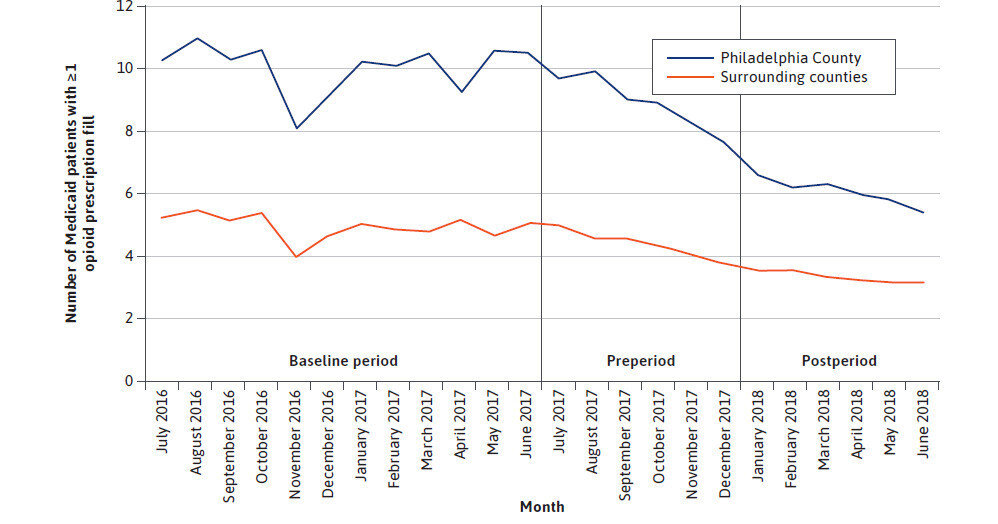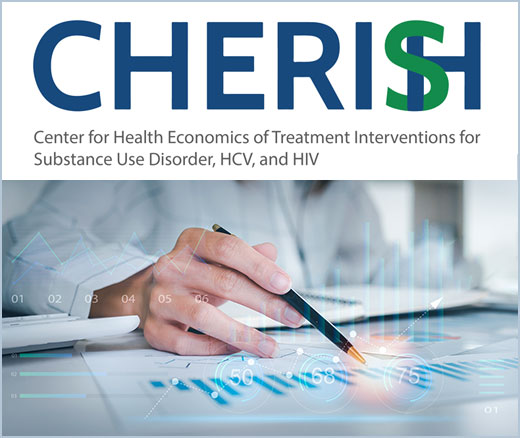
New Model Predicts Stimulant Overdose Risk Among Medicaid Patients
LDI Fellows Used Medicaid Data to Identify Individuals at Highest Risk for Cocaine- and Methamphetamine-Related Overdoses, Paving the Way for Targeted Prevention
Substance Use Disorder
Blog Post

Opioid overprescribing has been implicated in the opioid crisis. However, motivating physicians to change prescribing behavior has proven difficult. Performance feedback has been used in other medical settings to change behavior, does it work in the context of opioids?
In a recent study, LDI Senior Fellows Molly Candon and Aileen Rothbard, mailed opioid prescribing report cards to Medicaid providers in Philadelphia. The researchers then compared prescribing patterns to Medicaid providers in surrounding counties who did not receive report cards.
The authors found that there was a larger reduction in opioid prescribing among Philadelphia Medicaid providers than those in surrounding counties after report cards were mailed. In the six months after the report cards were mailed, compared with the six months before, each Philadelphia Medicaid provider prescribed three fewer Medicaid patients with an opioid prescription per month.
What do these findings suggest about the future impact of report cards in addressing opioid prescribing trends? Opioid prescribing report cards not only influence provider prescribing trends, but they also provide an opportunity for community collaboration. The report cards were developed by a multidisciplinary team of county officials, Medicaid managed care organizations, and academics, and were the first of their kind to be launched at the county-level, suggesting room for future collaboration. Additionally, report cards complement other interventions aimed at targeting inappropriate opioid prescribing, such as prescription drug monitoring programs and prior authorization.
The study, “The Impact of Opioid Prescribing Report Cards in Medicaid,” was published in the August 2022 issue of the Journal of Managed Care and Specialty Pharmacy. Authors include Molly Candon, Lingshu Xue, Siyuan Shen, Evan Cole, Julie Donohue, and Aileen Rothbard.


LDI Fellows Used Medicaid Data to Identify Individuals at Highest Risk for Cocaine- and Methamphetamine-Related Overdoses, Paving the Way for Targeted Prevention

Penn and Four Other Partners Focus on the Health Economics of Substance Use Disorder

Penn Medicine’s New Summer Intern Program Immersed Teens in Street Outreach Techniques

LDI Experts Offer 10 Solutions to Get More Help to Seniors With Addiction

More Flexible Methadone Take-Home Policy Improved Patient Autonomy
Research Brief: LDI Fellow Recommends Ways to Increase Availability

Testimony: Delivered to Philadelphia City Council

Pediatricians’ Suggestions for Health Care Providers, Institutions, and Policymakers